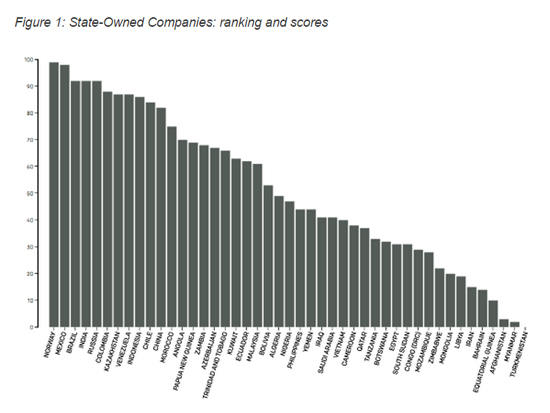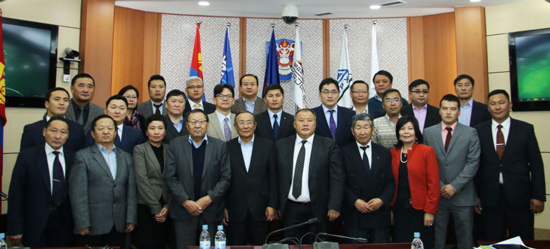
Greater Governance, Stronger Rankings: Mongolia Revisits the Resource Governance Index
In 2013 the Natural Resource Governance Institute (NRGI) published its Resource Governance Index, a ranking of countries where extractive resources play a considerable role in economic and sustainable development.
Of 58 countries, Mongolia ranked 26th, with a “partial” score of 51 out of 100. The country's institutional and legal setting earned high marks, while its reporting practices scored poorly.
Despite its middle-of-the-road composite score, Mongolia's state-owned enterprise (SOE) earned a sub-score of 20 out of 100, worse than all but seven of the ranking's 45 countries with SOEs.

Mongolia's state-owned enterprise scored 20 out of 100. The country looks to improve its ranking.
Above all, a lack of transparency brought the sub-score down, the RGI's authors wrote. “Almost no information is available on the functioning of the company. It publishes no financial reports, despite a legal obligation to do so,” the report said.
Since early this year, NRGI has worked closely with Mongolia's government to help it improve its RGI ranking and better manage its resource revenues in a volatile commodities market. In February the Mining Ministry met with NRGI's Marie Lintzer, Patrick Heller and Dorjdari Namkhaijantsan to review relevant studies on SOEs around the world.
Endowed with vast mineral deposits, Mongolia has several medium to large SOEs in its mining sector. Some are remnants of Soviet times, while others are more recent establishments. With 15 so-called strategic deposits to date, the state can participate as an equity holder, but its level of participation depends on whether deposits were discovered using state or private funds, according to the country's 2006 Minerals Law.
A state holding company, Erdenes Mongol, oversees the government's role in projects that develop and mine these deposits. These include five mines—Erdenet (copper molydenium), Oyu Tolgoi (copper and gold), Baganuur (coal), Shivee Ovoo (coal), and Tavan Tolgoi (coking coal)—and their subsidiaries.

NRGI's Dorjdari Namkhaijantsan, in rear between two blue flags, meets with Erdenes Mongol board members in October in Mongolia's capital.
More recently, Erdenes Mongol representatives expressed interest in working closely with NRGI to improve company governance. Discussions at Oyu Tolgoi, which published the EITI subnational report in its monthly information bulletin, focused on whether the government could hold equity positions in mining companies, oftentimes against tax and other concessions, or sell state equity down the road.
In response, NRGI submitted recommendations [available here in Mongolian] to Erdenes Mongol and the country's EITI stakeholders. Annual financial reports, audit reports, financial disclosures and information about company management must be made available to the public on a regular basis, for starters.
In October, Erdenes Mongol's committed at an NRGI-led workshop for its board of directors to work to improve its overall RGI score on SOE governance. Notable participants included Mr. Ch. Otgochuluu of Oyu Tolgoi and the Ministry of Mining, Mr. G. Temuulen of Oyu Tolgoi, Mr. S. Behbat of the Ministry of Economic Development, and Mr. O. Sainbuyan and Mr. S. Tselmeg, both of Erdenes Mongol.
The company managers, who plan to hold NRGI training workshops on a regular basis, have expressed a willingness to raise their governance standards to the level of the best performing SOEs in the world.
If they are to improve their resource governance score before next year's new rankings are released, they must continue to push for urgent and significant reform.
Dorjdari Namkhaijantsan is NRGI's Mongolia country coordinator. Fidan Bagirova is NRGI's Eurasia senior regional associate.
Authors

Dorjdari Namkhaijantsan
Mongolia Manager

Fidan Bagirova
Eurasia Senior Officer